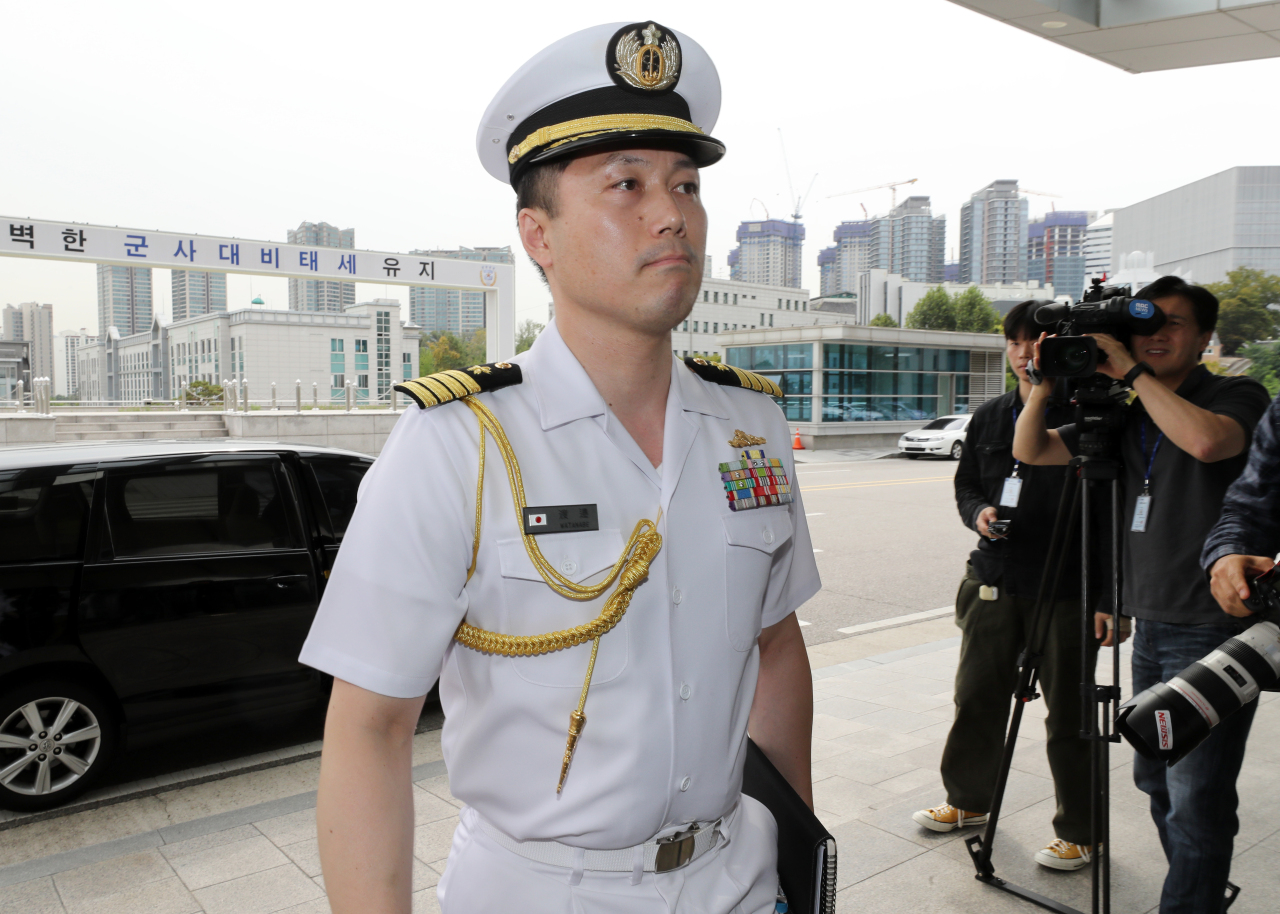South Korea criticized Japan Friday for repeating unilateral disputed defense agendas in its latest defense white paper, including its claims on Dokdo islets.
Seoul’s Foreign Ministry released a statement strongly denouncing Tokyo, saying that Japan should realize that its “unfair” and “absurd” claims would not help the bilateral relationship in any way.
 |
Capt. Tatsuya Watanabe of Japanese marines Self-Defense Force (Yonhap) |
“We strongly protest Japan’s claim of unfair sovereignty over Dokdo, that is clearly our territory historically geologically and by international law. We call for (Japan) to withdraw its claim immediately,” the ministry said in a statement.
Earlier in the day, Japan released its 2019 defense white paper, in which it claimed the South Korean islets of Dokdo in the East Sea as its own territory called Takeshima.
“There are issues concerning Taiwan and the South China Sea. Furthermore, with regard to Japan, territorial disputes over the northern territories and Takeshima, both of which are inherent parts of Japan, remain unresolved,” it said.
While South Korea has maintained effective control of Dokdo since 1945, Japan has laid claims to the islets in its white paper every year since 2005.
“The government will again will make it clear that the Japanese government’s unfair claims do not affect our sovereignty over Dokdo, the unique territory of the Republic of Korea, and will respond firmly to any provocations by Japan,” Seoul’s Foreign Ministry said, referring to the official name of South Korea.
South Korea’s Defense Ministry also called in Japanese defense attache in Seoul at 1:30 p.m. to file a complaint against the white paper, which blamed Seoul for scrapping an intelligence-sharing pact, and for the maritime military spat early this year.
Lee Won-ik, director general of international policy at the ministry, called in Capt. Tatsuya Watanabe of Japan’s maritime Self-Defense Force to complain and urge Japan to correct its claims.
In the white paper, Japan reiterated its accusation that a South Korean warship had locked fire-control radar on its patrol aircraft. Seoul rejected the claims, and called for an apology over Tokyo’s menacing low-altitude flybys at the time, but the white paper came short of explaining its own actions.
“We deeply regret Japan’s unilateral blames and urge for Japan to correct its position,” the ministry said in a press release.
The Japanese white paper also mentioned South Korea’s withdrawal of the General Security of Military Information Agreement, a bilateral intelligence-sharing pact with South Korea, calling for a revocation.
But the Defense Ministry here said it has made it clear that the government’s decision to end GSOMIA with Japan is due to its unfair economic retaliation, and hopes for sincere efforts to revive trust.
By Jo He-rim (
herim@heraldcorp.com)




![[Herald Interview] 'Trump will use tariffs as first line of defense for American manufacturing'](http://res.heraldm.com/phpwas/restmb_idxmake.php?idx=644&simg=/content/image/2024/11/26/20241126050017_0.jpg)

![[Health and care] Getting cancer young: Why cancer isn’t just an older person’s battle](http://res.heraldm.com/phpwas/restmb_idxmake.php?idx=644&simg=/content/image/2024/11/26/20241126050043_0.jpg)

